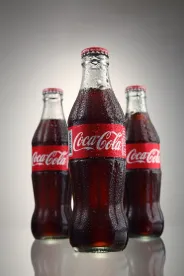The public health community has been more vocal over the last several years regarding the amount of sugar being used in food and beverages. On January 4, 2017, the Praxis Project (“Plaintiff”), a public health advocacy group, filed a complaint against the Coca-Cola Company (Coca-Cola) and the American Beverage Association (ABA) (collectively “Defendants”) in U.S. District Court of Northern California seeking relief for alleged false and misleading advertising practices for sugar-sweetened beverages (“SSBs”). The Complaint alleges, among other things, that Defendants colluded to promulgate a false advertising scheme to mislead and misdirect the public and governmental public health agencies about the “science” linking consumption of SSBs to obesity, type-2 diabetes, and cardiovascular disease. Plaintiff seeks to enjoin Coca-Cola and ABA from continuing marketing campaigns that deny the link between their products and obesity and other public health epidemics as well as marketing to children. The Praxis Project has modeled its strategy based on plaintiffs’ strategy in tobacco litigation, even drawing express comparisons between the two industries within the Complaint.
Plaintiff alleges Defendants committed willful misconduct by denying any link between their products and disease, funding research that denies or misleads the public about the link between their products and diseases, making statements that potential health detriments of SSBs can be balanced out with activity and positive lifestyle choices, and making statements that hydration from beverages such as SSBs is “essential” to the human body. Plaintiff alleges that Defendants’ misconduct stems mostly from their cultivating relationships with scientists as a way to balance the public health debate on SSBs, much like how the tobacco companies did in 1953 by forming the Tobacco Industry Research Committee. Plaintiff claims that Coca-Cola specifically created and funded the Global Energy Balance Network and the European Hydration Institute, but Coca-Cola tells the public these entities are disinterested researchers. Plaintiff also cites Defendants’ tactics of funding research that denies the link between SSBs and the cited diseases as well as paying doctors and health professionals to act as spokespersons denying or minimizing claims that SSBs are linked to obesity.
Plaintiff cites a number of public health authorities and scientific research that support some link or association between SSBs and the cited diseases, but none seem to make a definitive conclusion that SSBs are the cause of the diseases. Plaintiff’s Complaint also does not address alternate causes of the cited diseases.
Plaintiff also takes aim at Defendants’ marketing practices and again specifically likens them to the prior practices of the tobacco industry. Plaintiff states that “despite its pledge not to do so, Coca-Cola continues to target children with a material segment of its advertising. Like the tobacco industry, Coca-Cola needs to replenish the ranks of its customers, and it tries to recruit them young.” Plaintiff cites Coca-Cola’s use of cartoons, celebrities, apps, billboards and sponsored events incorporating its branded products to target children and the less-educated, implying that they are more susceptible to persuasion. Plaintiff argues Defendants’ targeting of a vulnerable population, children and the less educated, overcomes any consumer’s free choice in drinking SSBs. Plaintiff ultimately calls for the court to allow public health policy to steer the law in this case, and in turn its successors, in its request for relief.
The use by the public health community and plaintiffs’ bar of tobacco litigation as a roadmap against food and beverage manufacturers has been predicted by many in public literature. Plaintiff’s Complaint demonstrates that manufacturer’s public statements, membership in trade associations, scientific research, corporate conduct, and internal company documents are areas of inquiry. Moreover, given the scientific and public health community’s continuing pronouncements recent advancement of conditions that suggesting people are not responsible for their own choices, is the concept of food addiction, it may only be a matter of time before food and beverage manufacturers face a wave of litigation from consumers asking food and beverage companies to pay them for consuming their products. Manufacturers should ask themselves what would be the response if sued with a Praxis-like complaint. How have you conducted your business and dealt with consumers over the years? It is better to know your strategy now, then scramble after being sued.




 />i
/>i

